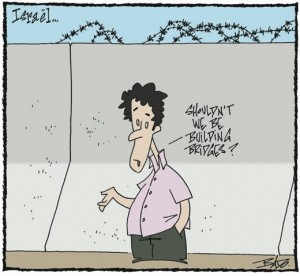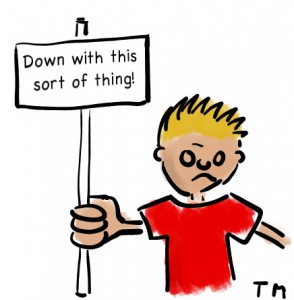One thing I have hugely appreciated about having children in the Ontario public school system is their commitment to character education. Integrity, respect, cooperation and responsibility are not merely buzzwords but are taught, modelled and reinforced at every opportunity. Which causes me to run into difficulty when trying to explain the current labour dispute to my children.

Students in Simcoe county schools are encouraged to demonstrate these character traits: Integrity, responsibility, cooperation, caring, respect, optimism, honesty, empathy, courage and inclusiveness. In general, I have seen that the staff at our local school have genuinely modelled these traits as well as taught them.
However, I do not feel that I can say the same thing about the education ministry or the teacher’s unions. When Lauren Broten, the education minister, unilaterally imposes an agreement on the province’s schoolteachers, this is not an act of cooperation. When Sam Hammond, president of the Elementary Teachers Federation of Ontario accuses the government of ‘disgraceful misuses of power’, he is not demonstrating respect.
When unions call on teachers to withdraw from all extra-curricular activities, this cannot be understood as being a caring act towards our children. And when all parties talk past each other and accuse each other of being disingenuous, they are not displaying the character trait of honesty.
I would like to be able to tell my children that the teachers, their unions, and the government sat down together in an atmosphere of cooperation and respect, that they listened to each other with empathy. That they honestly and courageously looked at the very real financial constraints the education system is dealing with, and figured out how best to provide a caring and inclusive education system for all of our students. And that they then went forward with optimism to implement their ideas.
But at the moment, I unfortunately cannot.





